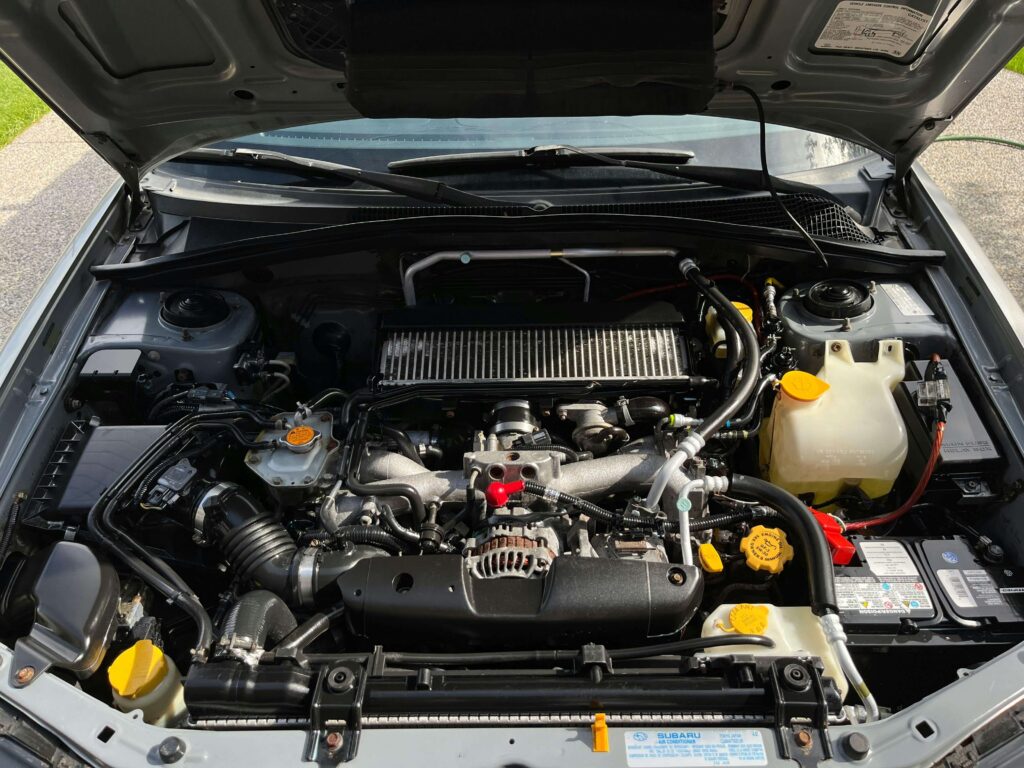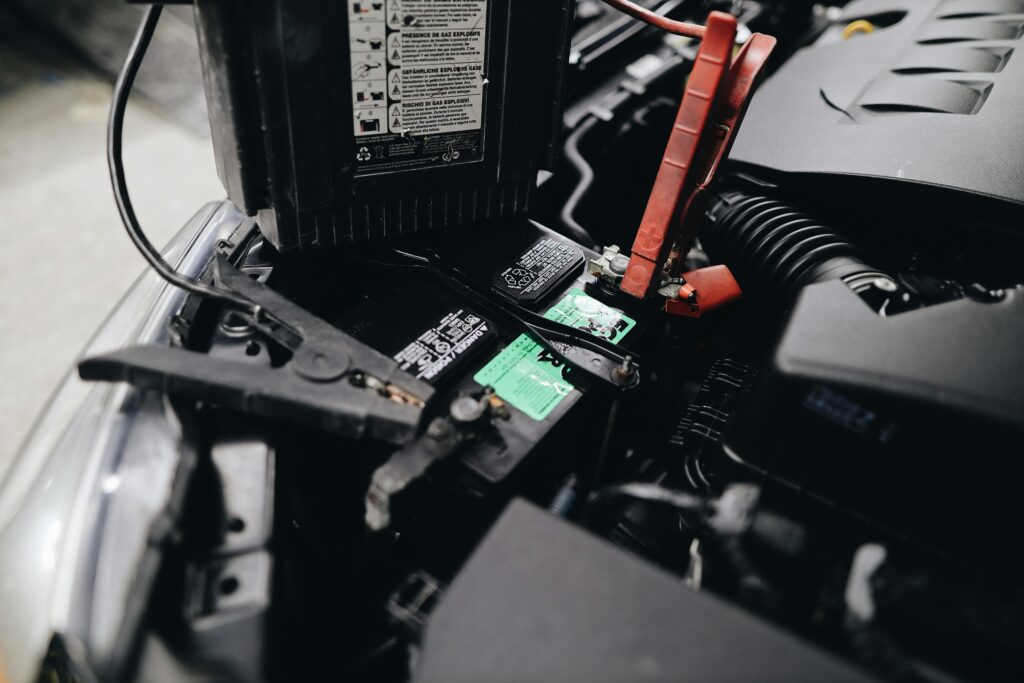The ignition system is one of the most essential components of your vehicle. It’s responsible for starting your engine, ensuring that your car runs smoothly every time you turn the key or push the start button. When the ignition system fails, it can lead to a frustrating and potentially costly breakdown. Fortunately, many ignition system failures are preventable with regular maintenance and early detection of potential issues.
In this post, we’ll go over what the ignition system is, how to spot the signs of failure, and most importantly, how you can prevent it from happening in the first place.
What Is the Ignition System?
The ignition system is a critical part of your car’s electrical system, responsible for starting the engine. It includes several key components:
- Ignition Coil: Converts the battery’s low voltage into the high voltage needed to spark the spark plugs.
- Spark Plugs: Ignite the air/fuel mixture in the engine’s cylinders to start combustion.
- Ignition Switch: The mechanism that activates the ignition system when you turn the key or push the button.
- Distributor: Directs the high-voltage electricity to the correct cylinder.
- Battery and Alternator: Provide power to the ignition system.
When any of these components fail or wear out, your vehicle may fail to start, experience rough idling, or have trouble running. Here’s how you can prevent ignition system failure from happening.
1. Regularly Replace Spark Plugs
Prevention Tip:
Spark plugs are integral to the ignition process, and over time, they can wear out, become corroded, or accumulate carbon deposits. This can result in weak or intermittent sparks, causing engine misfires, poor acceleration, and difficulty starting the car.
How to Prevent Failure:
- Replace spark plugs every 30,000 to 100,000 miles (or as recommended in your car’s owner manual).
- If you notice signs like engine misfires, rough idling, or reduced fuel efficiency, have the spark plugs inspected and replaced as needed.
- Always use the correct type and brand of spark plugs recommended by your vehicle manufacturer.
2. Check the Ignition Coil
Prevention Tip:
The ignition coil is responsible for converting the 12-volt power from the battery into the higher voltage needed to ignite the air/fuel mixture in the engine. If the ignition coil begins to fail, it can lead to starting issues, engine misfires, or reduced power while driving.
How to Prevent Failure:
- Keep an eye out for signs like poor acceleration, engine stalling, or difficulty starting the car, as these could indicate ignition coil issues.
- Have your ignition coil inspected and tested regularly, especially if your car has high mileage.
- If you notice any irregularities in the vehicle’s performance, get the ignition coil checked and replaced if necessary.
3. Maintain the Battery and Alternator
Prevention Tip:
The ignition system relies on power from the battery to function correctly. If the battery is weak or the alternator is failing, the ignition system may not receive the power it needs to operate efficiently. In Ottawa, extreme winter temperatures can put extra strain on the battery, increasing the likelihood of a dead battery, which can lead to ignition system problems.
How to Prevent Failure:
- Inspect the battery regularly for signs of corrosion on the terminals and replace it every 3-5 years.
- Test the alternator to ensure it’s charging the battery properly. If the alternator is not functioning correctly, the battery may not be able to provide the power needed for the ignition system.
- Keep the battery charged, especially in colder months, and make sure the alternator is working as it should.
4. Inspect the Ignition Switch
Prevention Tip:
The ignition switch is responsible for activating the electrical systems in your car, including the ignition system. Over time, the ignition switch can wear out due to regular use, making it difficult or impossible to start your vehicle.
How to Prevent Failure:
- If you notice that your key feels sticky, hard to turn, or doesn’t always start your vehicle on the first try, it could be a sign that the ignition switch is wearing out.
- Get your ignition switch inspected if you notice difficulty starting your vehicle or if it turns more than once before the car starts.
- Ensure that the ignition switch is cleaned and lubricated as necessary, especially in older vehicles.
5. Address Electrical Issues Early
Prevention Tip:
The ignition system is part of your car’s overall electrical system, which means electrical issues like blown fuses, wiring problems, or a malfunctioning computer module can affect its performance. A malfunction in any of these areas can result in ignition failure or poor engine performance.
How to Prevent Failure:
- Regularly check the wiring and electrical components of your car for signs of wear or damage.
- If you experience electrical issues like flickering lights, dashboard warning lights, or random engine stalling, get your electrical system checked by a professional.
- Fix blown fuses or faulty wiring immediately to prevent further damage to the ignition system.
6. Keep Your Vehicle’s Timing in Check
Prevention Tip:
The ignition system relies on precise timing to ensure that the spark plugs ignite the fuel mixture at the right moment. If your vehicle’s timing is off due to a faulty timing belt or chain, it can cause ignition problems, engine misfires, or even engine damage.
How to Prevent Failure:
- Regularly check and replace the timing belt or chain as part of your car’s scheduled maintenance.
- Pay attention to symptoms like rough idling, backfiring, or difficulty starting the engine, which could indicate timing issues.
- If your car has a timing belt, it should typically be replaced every 60,000 to 100,000 miles, depending on your vehicle’s make and model.
7. Avoid Ignition System Overheating
Prevention Tip:
Ignition components can overheat, particularly during hot weather or in cases of engine misfires. Overheating can cause damage to the ignition coil, spark plugs, and other critical components, leading to ignition failure.
How to Prevent Failure:
- Make sure your engine is running at the right temperature. If your car is running hot or frequently overheating, address the issue before it affects the ignition system.
- Regularly check the cooling system, including coolant levels, the radiator, and the thermostat, to ensure the engine stays at a safe operating temperature.
- Avoid high-stress driving, such as long periods of idling or heavy acceleration, which can cause the ignition system to overheat.
8. Get Regular Maintenance and Inspections
Prevention Tip:
The best way to prevent ignition system failure is through regular maintenance and inspections. Having your car checked regularly by a qualified mechanic can help identify any potential ignition system issues before they become serious problems.
How to Prevent Failure:
- Schedule regular tune-ups and inspections, especially for high-mileage vehicles.
- Have the ignition system thoroughly checked at least once a year as part of your car’s routine maintenance.
- Address any small issues with the ignition system before they develop into bigger problems.



